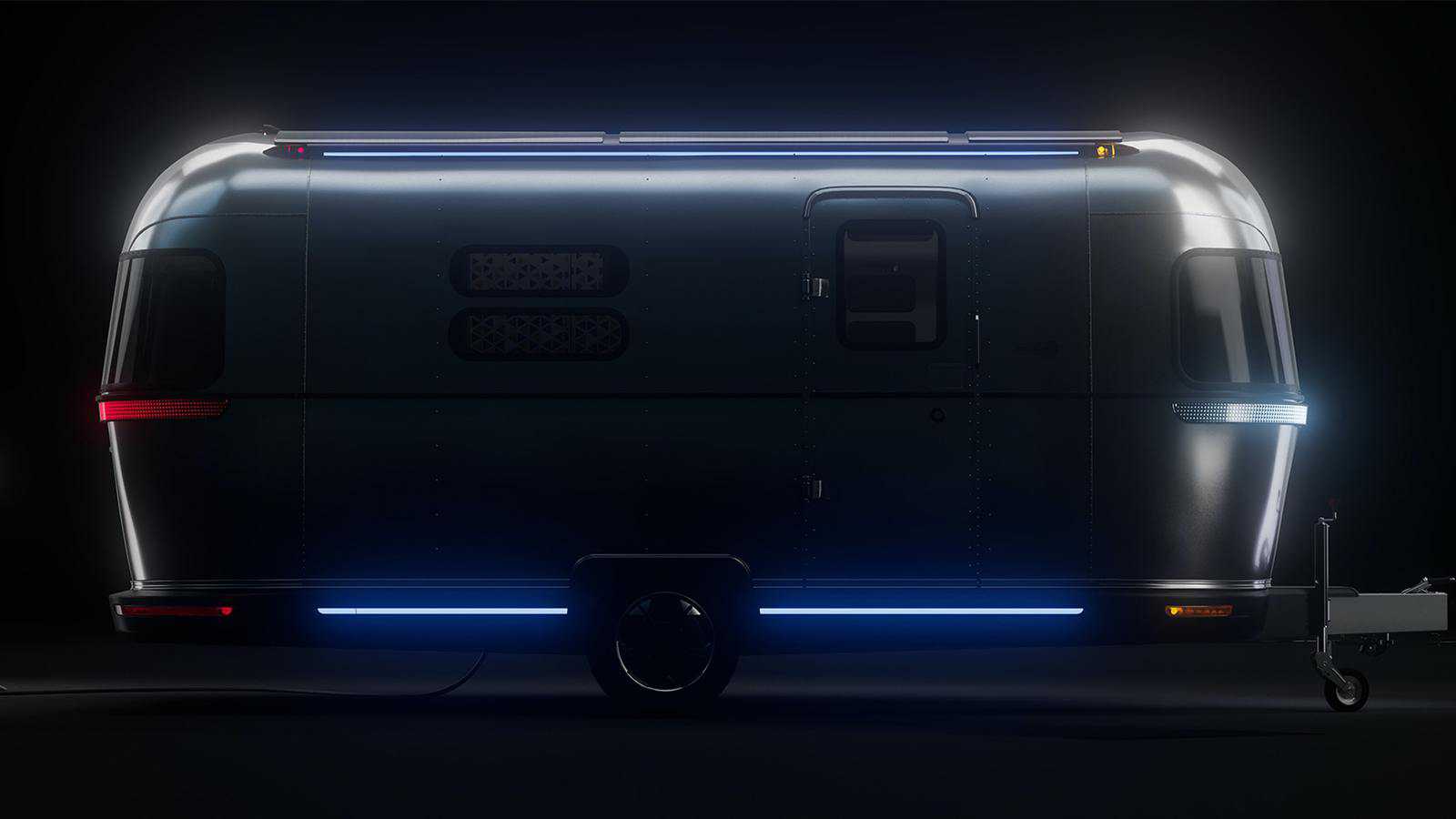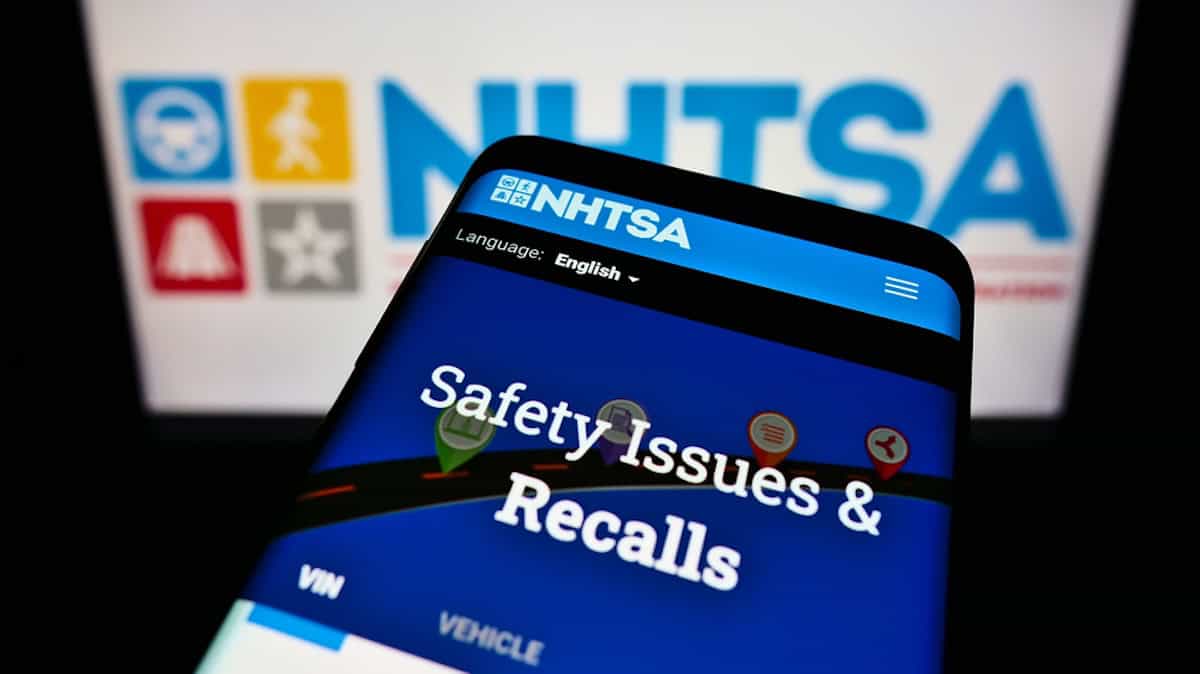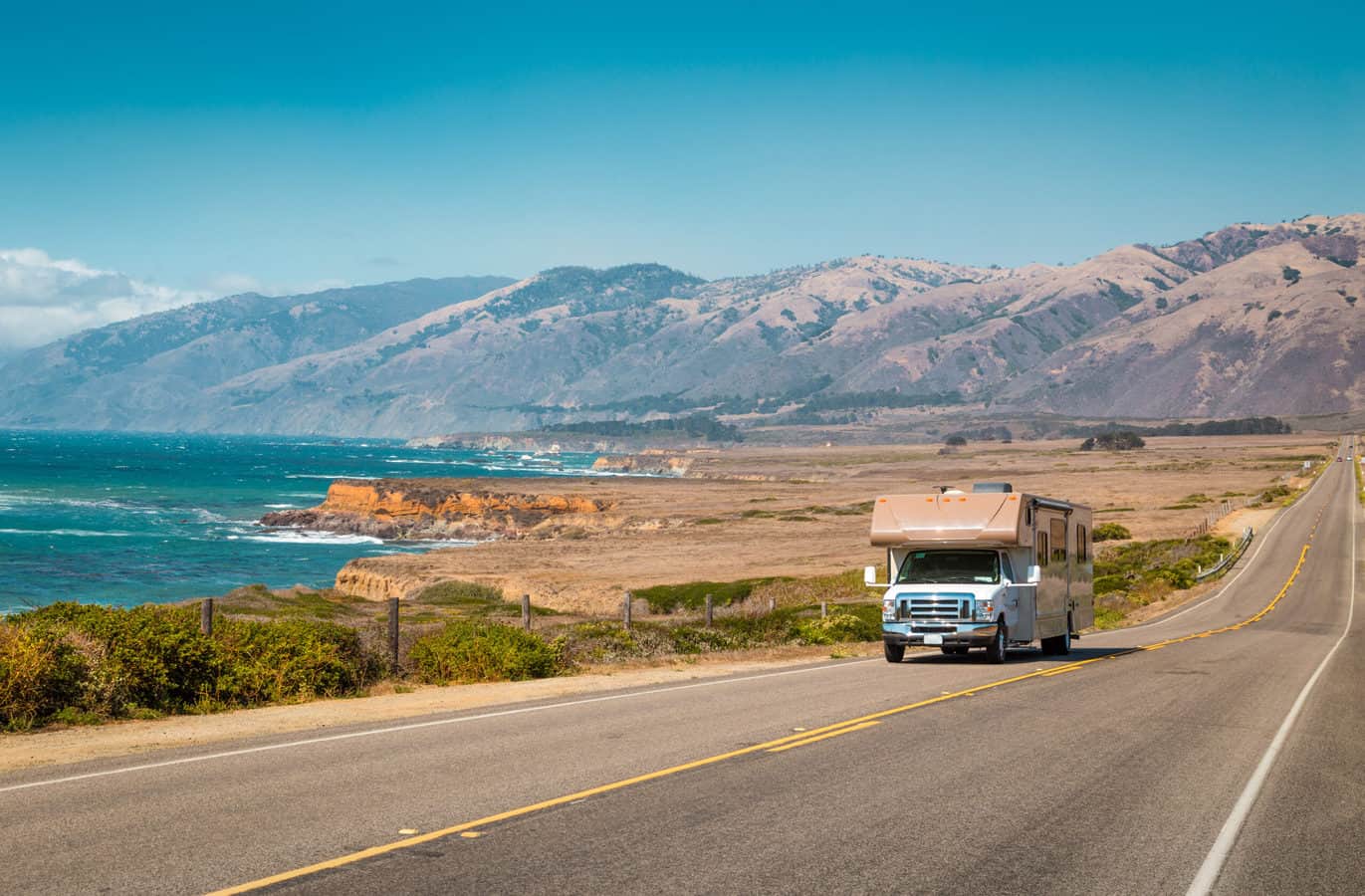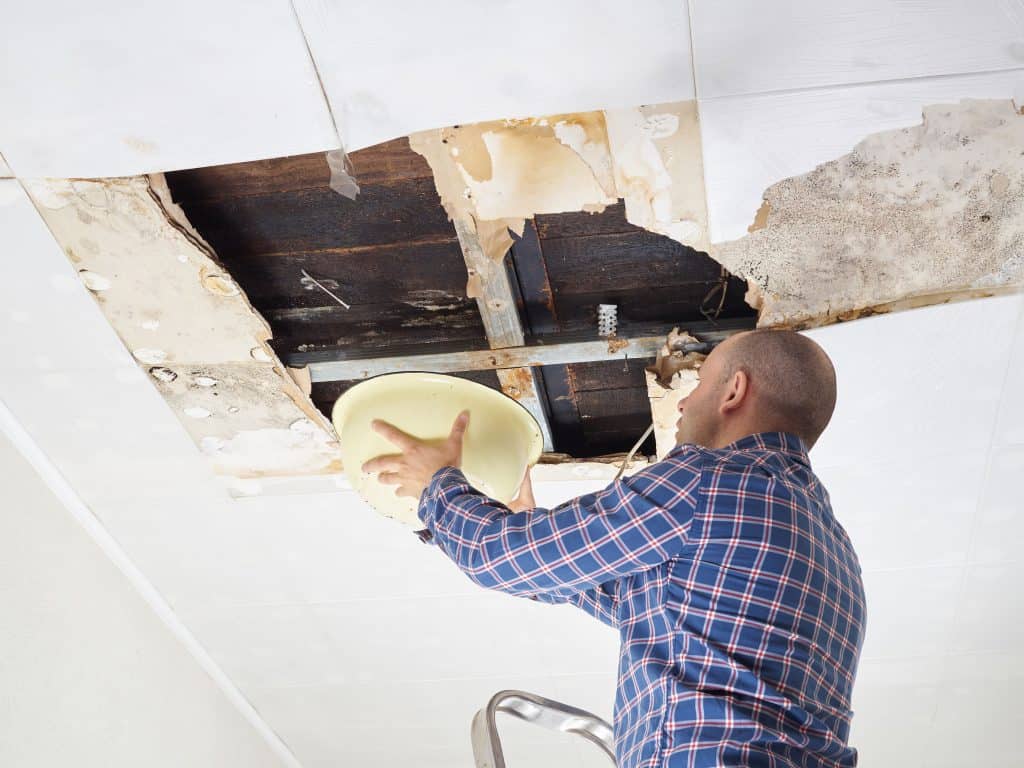
When you need to make an insurance claim, it’s important to be confident that your policy covers the damage. That confidence comes from doing your homework and being familiar with your policy’s coverage and exclusions.
While many insurance policies for travel trailers will cover some aspects of water damage, all policies are not created equal, so coverage for water damage may not be included. If your travel trailer is covered under your automobile insurance or if your travel trailer policy has specific exclusions, water damage might not be covered, and insurance companies are not required by law to cover water damage in recreational vehicles.
Reading the fine print on your insurance policy and speaking directly with your insurance agent about covering water damage can make the difference between being stuck paying out of your own pocket for water damage that you thought was covered and having your insurance company write out a check.
Read on to know what to look for when reviewing insurance policies and checking for or preventing water damage.
What Type of Insurance Coverage is Available For Travel Trailers?
Recreational vehicles, including travel trailers, can be covered under a variety of policies. To make the right choice when reviewing your current coverage or looking for new coverage, it’s important to know these different types of policies:
- Collision coverage covers accidents that happen while you’re on the road. This type of coverage generally protects the structure of a vehicle (like with your automotive insurance policy) and can also cover some interior features.
- Comprehensive coverage can take care of a wider variety of damages not due to accidents. These damages can be due to incidents such as a fire or damage from hail. Comprehensive policies vary, so simply having this type of policy does not guarantee that every non-accident incident or problem is protected.
- Contents coverage insures personal belongings like electronics, clothes, and valuables. The items covered and the amount of coverage will vary according to policy.
- Liability coverage covers costs associated with the harm caused to someone else by you, similar to car insurance.
- Medical payments coverage covers medical costs for yourself and your passengers if you are at fault in an accident.
Did you see the policy above that is specific to water damage? If you didn’t, don’t worry, because there isn’t a separate category that covers only water damage. Water damage can happen in a lot of different ways and coverage is dependent on your individual policy, so make sure to talk to your insurance agent about your concerns and what you want covered.
How Do I Know if Water Damage is Included in My Policy?
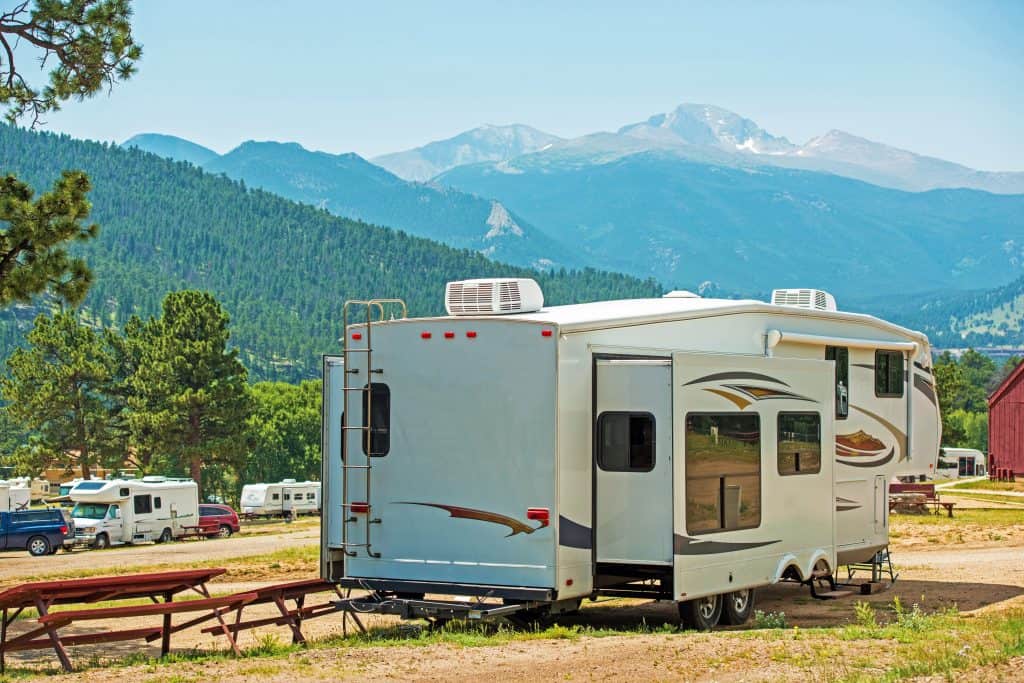
Most policies that cover water damage also make exclusions for certain types of damage. General RV insurance policies usually contain exclusions which do not cover water damage resulting from the following reasons:
- Damage originating from manufacturer defects in your travel trailer.
- Prior damage, particularly if your travel trailer was purchased used.
- Normal wear and tear.
- Lack of routine maintenance as recommended by your travel trailer’s manufacturer.
- Repeated exposure to temperature extremes like excessive dampness, freezing, or heat.
- Problems from neglect like snow and ice buildup, water leakage, dry rot, corrosion, or rust.
In order for water damage to be covered in your recreational vehicle, the water damage must be considered sudden and accidental. This includes factors like flooding, rain, or water system failures (hot water heater, plumbing system, or water-consuming appliances).
Any water damage that occurs over time is not considered accidental. If the water damage results from insufficient maintenance or the failure of internal or external seals, it likely won’t be covered.
Be aware that there are differences between coverage for full-time and part-time RV-ers. If you live in your travel trailer full-time, or most of the time, you’ll want to have more coverage which could be closer to a homeowner’s policy and offer more coverage for water damage than a part-time discount policy.
In some circumstances, water damage not covered by your RV policy could potentially be covered under your homeowner’s insurance. Check both of your policies and be aware that insurance companies may be more willing to consider covering some damages this way if both your home and RV are covered through the same company.
Keep in mind that the age, make, and model of your travel trailer can affect how much and what types of damage are covered, and older RVs are more at risk for problems. Talk to your insurance agent and be specific about what you’d like to have covered.
How Do I Check For Water Damage?
Being proactive about checking for water damage pays off by making sure that if you can make an insurance claim, you do so quickly and resolve issues efficiently and inexpensively.
Be sure to inspect your travel trailer for water damage on a regular basis. Some RV dealerships and repair shops offer leak testing. They often do this by using air pressure to detect any leaks in your travel trailer.
You can (and should) also inspect your travel trailer yourself. Although it takes time and dedication, doing so will help you spot issues and keep your travel trailer in top condition.
Make a schedule for a self-inspection. Before and after a big trip is a good time to look things over. Even if your travel trailer is in storage, or if you’re on the road for an extended time, it’s a good idea to check for leaks on at least a monthly, and preferably a weekly, basis.
To do so, you’ll want to thoroughly check seals on doors and windows and examine the seams both inside and out. Look for air leaks or breaks in caulk or rubber where air or water could leak through. You’ll also want to keep an eye out for any areas of discoloration or drips on walls, ceilings, and floors.
Be aware that the age of your travel trailer is a factor. Not only do RVs depreciate in value over time, but with age, they also become more susceptible to damage due to heavy road vibrations, constant movement, and exposure to varying weather conditions.
It’s important to take precautions while you’re on the road as well. Pay attention to posted clearance signs on underpasses, bridges, parking garages, and drive-thrus to avoid damage to the roof of your travel trailer.
Avoid low-hanging trees and branches, and try to avoid parking under trees. What may look like a few cosmetic scratches may go deeper and lead to leaks. Pay attention to the weather on your trip to avoid, as much as possible, extremes like hail, heavy snow, and flash flooding or rain.
Should I be Concerned About Water Damage in My Travel Trailer?
You should absolutely be concerned about water damage to your travel trailer just as you would be concerned about water damage in your home or car for the following reasons:
- Health Issues. Water damage in your travel trailer can lead to a variety of health problems, particularly respiratory issues that can be triggered by fungus or mold. These problems can be compounded if you have existing respiratory issues or have other health issues that compromise your immune system.
- Further Damage. Even slight water damage in your travel trailer can lead to larger structural damages. Unlike your home, your travel trailer is constantly moving and made of many moving parts. Repeated exposure to water can lead to rust or rot, and repair costs can get out of control quickly.
- Investment Value. You put a lot of time, money, and energy into your recreational vehicle. Because you don’t take those investments lightly, you shouldn’t take damage lightly either. To get the best return on your investment whether, through personal enjoyment or resale value, you should correct any damages quickly to stop greater problems before they start.

